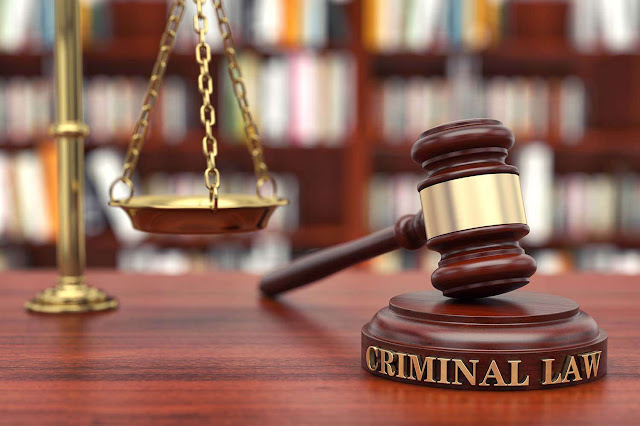When facing legal troubles, choosing the right criminal lawyer can make all the difference between a favorable outcome and a life-altering setback. A criminal lawyer plays a pivotal role in navigating the complex legal system, building a strong defense, and ensuring your rights are protected throughout the process. However, with so many options available, finding the right fit can feel overwhelming. This guide will provide you with actionable tips to help you evaluate a lawyer’s experience, reputation, and expertise, ensuring you make the best decision for your case.
1. Understand the Role of a Criminal Lawyer
Before diving into the selection process, it’s essential to understand what a criminal lawyer does. Criminal lawyers specialize in defending individuals and organizations charged with criminal offenses. Their responsibilities include :
 |
| How to Choose the Right Criminal Lawyer for Your Case |
- Analyzing evidence and investigating the case
- Representing clients during court appearances
- Negotiating plea bargains
- Providing legal advice tailored to the specifics of your case
Knowing their scope of work will help you identify the qualities and skills you should prioritize during your search.
2. Start with Research
Your first step in finding the right criminal lawyer is conducting thorough research. Use online directories, bar association websites, and personal recommendations to compile a list of potential candidates. Focus on lawyers who specialize in criminal law, as they will have the expertise needed to handle your case effectively.
Key Tips for Research :
- Check for lawyers in your jurisdiction since laws vary by state or country.
- Look for professionals with experience handling cases similar to yours.
- Read reviews and testimonials from previous clients to gauge their satisfaction.
3. Evaluate Their Experience
Experience is a critical factor when choosing a criminal lawyer. An experienced attorney will better understand the legal system, potential pitfalls, and effective strategies to achieve the best outcome.
Questions to Ask :
- How many years have you been practicing criminal law?
- Have you handled cases similar to mine before?
- What was the outcome of those cases?
Look for a lawyer with a proven track record of success in cases like yours, whether it’s a DUI, theft, assault, or other criminal charges.
4. Assess Their Reputation
A criminal lawyer’s reputation can significantly impact your case. Lawyers with strong reputations often have established relationships with prosecutors, judges, and other legal professionals, which can work in your favor.
Ways to Check Reputation :
- Look for awards, recognitions, or certifications in criminal law.
- Verify their standing with the local bar association to ensure no disciplinary actions have been taken against them.
- Read online reviews and ratings on legal forums and review platforms.
5. Specialization Matters
Criminal law encompasses various subfields, from white-collar crimes to violent offenses. Choosing a lawyer who specializes in your type of case can enhance your chances of success.
Examples of Specializations :
- Drug offenses
- Domestic violence
- Fraud and embezzlement
- Homicide
Specialized lawyers will have in-depth knowledge of the laws and legal strategies specific to your charges.
6. Schedule Initial Consultations
Most criminal lawyers offer initial consultations to discuss your case and determine if they are a good fit. Use this opportunity to assess their communication style, professionalism, and interest in your case.
What to Bring :
- Documents related to your charges
- A list of questions about their experience, strategy, and fees
Pay attention to how they explain complex legal concepts and whether they make you feel confident in their abilities.
7. Discuss Fees and Payment Plans
Understanding the financial aspect of hiring a criminal lawyer is essential. Legal fees can vary widely depending on the lawyer’s experience, location, and the complexity of your case.
Fee Structures to Consider :
- Hourly rates
- Flat fees for specific services
- Retainer agreements
Be sure to clarify what services are included in their fees and whether they offer payment plans to make legal representation more accessible.
8. Analyze Their Communication Skills
Effective communication is crucial when working with a criminal lawyer. You need someone who can explain legal terms in plain language, keep you updated on your case’s progress, and respond promptly to your questions.
Red Flags :
- Delayed responses to calls or emails
- Vague answers to specific questions
- Lack of transparency about case strategy
A lawyer who communicates clearly and consistently will ensure you feel informed and confident throughout the process.
9. Check Their Availability
A busy lawyer may not always have the time to devote to your case, which can hinder your defense. Ensure the lawyer you choose has the availability to focus on your case adequately.
Questions to Ask :
- How many cases are you currently handling?
- Will I be working directly with you or with your team?
Knowing their workload and who will be managing your case will help set realistic expectations.
10. Trust Your Instincts
Finally, trust your gut feeling. The right criminal lawyer should make you feel confident, supported, and understood. If something feels off during your interactions, consider exploring other options.
Conclusion
Choosing the right criminal lawyer is a critical step on the road to justice. By researching thoroughly, evaluating experience and reputation, and prioritizing clear communication, you can find a lawyer who will effectively represent your interests. Remember, the right legal advocate is not just a defender but a partner in navigating the complexities of the criminal justice system. With the right criminal lawyer by your side, you can approach your case with confidence and peace of mind.








